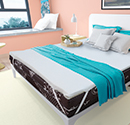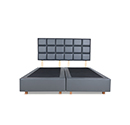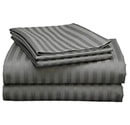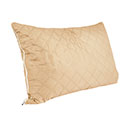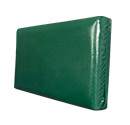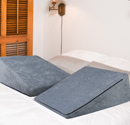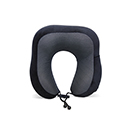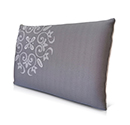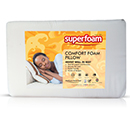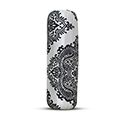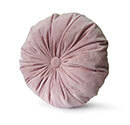Waking up with neck pain or struggling with a chronic neck pain is associated with one’s sleeping position and and the pillow they use for sleeping among other factors. Some pillows can be too soft or too firm thereby causing stress on neck structures.
Physical neck discomfort through the night may cause a disruption to your rest, which can create health problems with far reaching consequences than just aches and pain. Choosing the right pillow can minimize or eventually do away with neck discomfort maximising the quality of your sleep.
The best pillow for ensuring minimal neck pain problems is one that offers better support on the overall spinal alignment. The analogy of sleep requires that you find a pillow with the right firmness, thickness and size for your sleeping position. Therefore, we recommend you pair the right pillow with your sleeping position.
- Side sleepers require a pillow that’s firm enough to support the head and neck alignment with the spine, while still comfortable enough to fall asleep on. Good options include firm or extra firm pillow made of memory foam or fibre pillow stuffed with the right amount to provide sufficient give and sink in response to the weight and pressure of your head.
- Back sleepers also require a firm pillow that keeps their neck straight with their spine. Fibre medium firm pillows with divots for the neck and head are a recommended option.
- Combination sleepers transition between the side and back should choose pillows with a dent in the middle.
- Stomach sleepers need a thin, soft pillow. However, even with the right pillow, stomach sleepers may still (and often do) experience neck pain because they’re moving their head to the side and out of alignment with the spine.
Regardless of the pillow you choose, ensure that you measure the height to ensure it’s a good fit for you. Measure the length from your neck to your shoulder, and then find a pillow that matches that height. Most people sleep best with a pillow 4 to 6 inches thick.
Additionally, in your waking hours, minimize neck strain by exercising, staying hydrated, and maintaining good posture. Get an ergonomic desk chair, don’t hunch over your phone or computer and use a headset for phone calls.
However, if symptoms of neck pain persist, always seek medical attention from a doctor.




